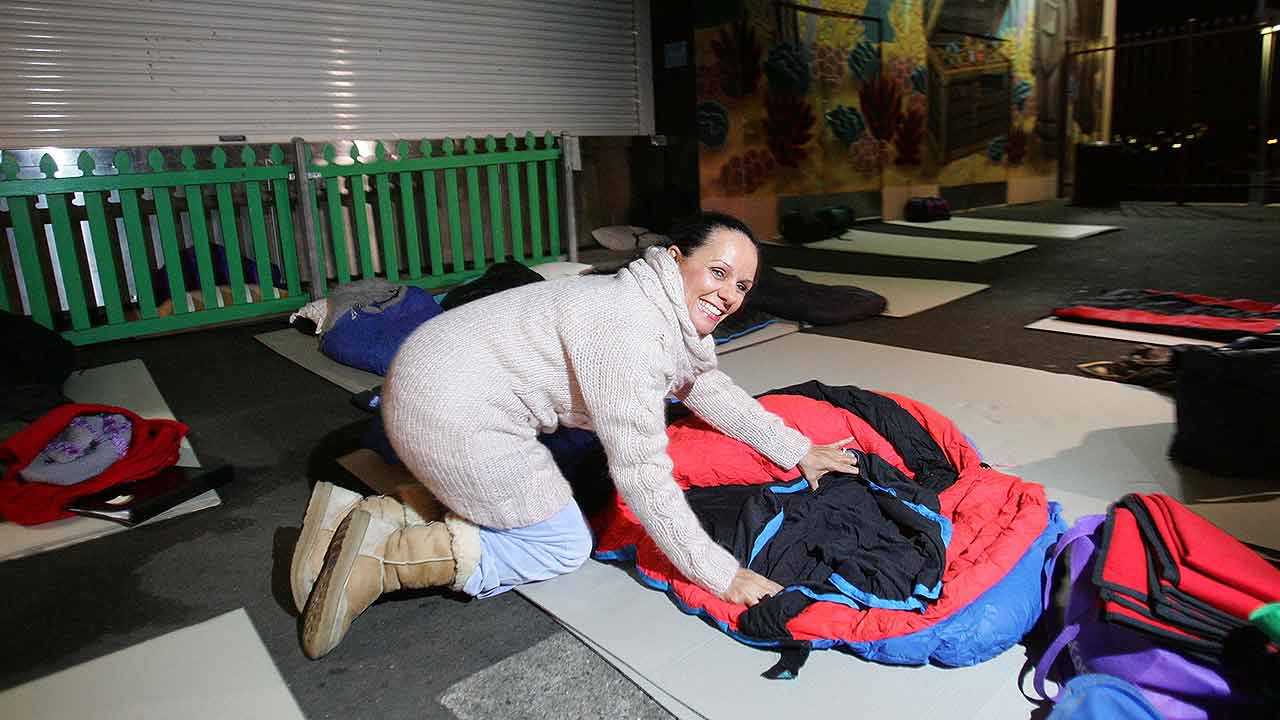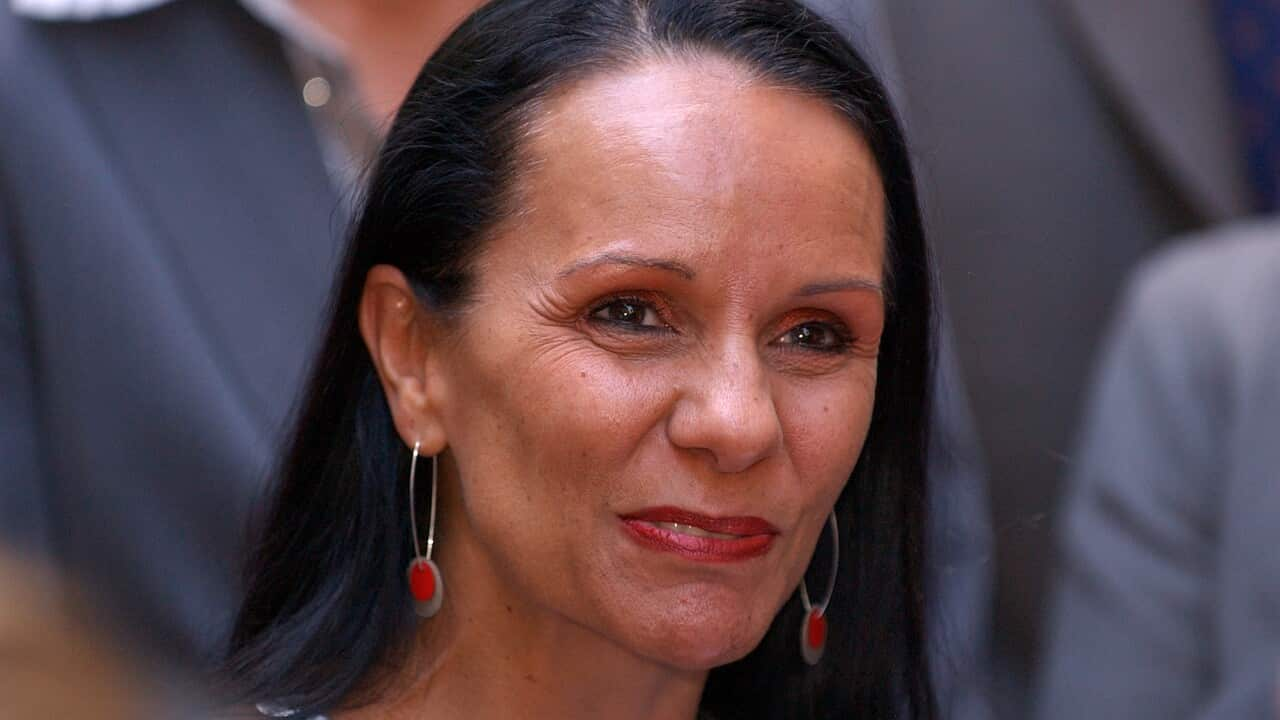"It was time to move on," Ms Burney, previously NSW Deputy Leader of the Opposition for the seat of Canterbury, told The Point about her decision to run for the seat of Barton in NSW.
"When I made my inaugural speech in the NSW Parliament, I made some promises, one that I would always work hard, and two, that I would always do my best, and I think those two things will serve me well, I hope, in the Federal Parliament," Ms Burney says.
"People that vote for you, and people that don’t even vote for you, but you represent them in a parliament, they expect you to take into that parliament their views and their aspirations, and that is what I'll continue to do."
Her first priority, she says, is to win the seat of Barton, currently held by Nickolas Varvaris from the Liberal Party. Before the redistribution, it was notionally a Liberal seat, but it's now notionally Labor.
"Barton now with the redistribution is just over 5 percent Labor, but it would be arrogant and naïve for me to say 'of course that means it's a Labor seat'. It doesn’t.
"We all know how much politics changes, and how quickly it changes."
But she believes state politics has put her in good stead to work at the national level.
"It is in many instances the state government that delivers the education, the justice, the health, the child protection, the roads, the hospitals, the infrastructure.
"So the fact that I've been involved at the state level in the actual delivery of services, I hope will assist with what I think's going to be is a learning experience for me in relation to setting policy, or being part of setting policy from a national perspective."
Policy priorities
Ms Burney says she will prioritise Constitutional reform.
"I think it is time, absolutely time that this country recognises the truth, and Aboriginal people should be recognised in the Constitution."
She also wants to review Section 25 of the Constitution that gives states' power to exclude people from voting on the basis of their race.
"The capacity for racism to be part of our Constitution has to go."
Equity in education will be another part of her agenda, she says.
"Labor has committed itself to vocational education, it's committed itself to accessible preschool, it's committed itself to the final two years of Gonski."
Burney on the Turnbull government
Ms Burney says Malcolm Turnbull's only quest is for power.
"He now has that power, he's the Prime Minister, and he's got no idea what to do with it," she says.
"Really power in itself is one thing. But knowing how to exercise it is another."
She points to the republic issue, same-sex marriage the environment, and access to vocational education.
"The Turnbull government has no idea or doesn’t care about giving equity to everyone” with the "massive introduction of private providers, fees that are unattainable for most people," over TAFE.

2010: Linda Burney, Minister for Community Services prepares her sleeping bag during the St Vincent de Paul CEO Sleepout at Luna Park. Source: AAP
Time for Australia to recognise its black history
"I understand the importance and also the great shame that Australia carries because of the unacceptable situation for Aboriginal people in every social justice measure in this country," she says.
For Australia as a nation to truly reach its potential it must recognise that "Aboriginal people are part of the franchise, not set up 'over there' as a separate entity."
Ms Burney says Aboriginal affairs has been on a downwards slope since 2008 when former prime minister Kevin Rudd apologised on behalf of previous governments to the Stolen Generation, families who were separated as part of assimilation policies through the 20th Century.
"You watch what has happened to Aboriginal affairs over the last three successive prime ministers, and it has gone from that point of the apology, that point of partnership, that point of understanding, to what I would describe as paternalism."
Aboriginality 'important but not defining'
"I don't want to be defined as the Aboriginal woman that goes in to the House of Representatives. I want to be defined as the person I am with my Aboriginality as the core, but much experience in life," says Linda Burney, a Wiradjuri woman.
Ms Burney says it is time Australia not confine Indigenous people to Indigenous affairs.
She wants the nation "to see Aboriginal people as people that can be competent at talking about environment, about unions, about childcare, about water about Aboriginal affairs, about love, about life."
I want to be defined as the person I am with my Aboriginality as the core, but much experience in life.
"It's ridiculous. We live in the suburbs, we go to the supermarket. We are Australians that have a heritage and a place that we want to share."
Incarceration rate 'most distressing' statistic
Ms Burney emphasised her intention to consider high rates of Indigenous incarceration in the federal sphere.
"The most distressing statistics for our people at the moment is incarceration rates, not just for adults, but alarmingly for juvenile detention for our young people."
Aboriginal and Torres Strait Islander young people comprise 5 percent of the Australian population, but about 60 percent of those were in detention between 2013 and 2014, according to Amnesty International. More than 50 percent of juvenile detainees in NSW are Indigenous young males, and 80 percent are Indigenous young females. In the Northern Territory, 97 percent of juvenile detainee are Indigenous.
"How can that be," she says.
"With those statistics in front of you, with that train wreck coming down the track, how can a government possibly cut back on something like that [Aboriginal Legal Service's] Custody Notification Scheme, which not only assists Aboriginal people in getting proper advice and proper representation, but assists them in keeping out of jail and most importantly being safe.
“For a government to cut that it is irresponsible, it’s heartless and it’s unimaginably difficult to understand.”
Should Indigenous people enter politics by a quota system or by merit?
Ms Burney says parties should make a commitment at the administrative and the parliamentary wings to identify and mentor Aboriginal people who are going to be successful candidates.
"In the past I have argued against quotas, but I know that Bill Shorten, he's made public comments about his desire to get more Aboriginal people into the parliament."

2015: Linda Burney speaking at The Great Hall at Sydney University during the State Funeral for Faith Bandler, Sydney. Source: AAP
'I could have done things differently over child protection'
"The governments and these organisations have got it wrong from day one," Aboriginal elder Aunty Hazel, from the Grandmothers Against Removal has said over the governments' removals of Indigenous children from their families.
"Like Linda [Burney], the minister there at one point, and I wish she would have acted in the way she's talking now because the rate of child removal at that time escalated."
It's a sentiment that Ms Burney now acknowledges, saying that she could have dealt with child protection better if she had her time again as NSW community services minister.
'If you said to me, 'are there some things that you would do differently?' she says. "Well of course the answer to that is 'yes', and the Grandmothers against Removal are people that perhaps question or have questioned my role as community services minister."
"That job was really difficult, but nowhere as difficult as the people, the families that were experiencing, the chaos experiencing the dysfunction, and as a result of that, losing their children."
Ms Burney was responsible for a change in community services delivery after Justice James Wood delivered a special commission of inquiry into the removals of children from their families.
She says while there was extra funding, it was "impossible" to roll out the perfect plan.
“Is it acceptable that over 30 percent of children who are removed are Aboriginal children? Of course it's not. But government has to recognise that in many cases those children that have been removed are from families that are not coping. And the real job is to support those families so that those children can be returned to those families.
But she adds if the situation cannot change, a child should not be returned to their families.
"The lack of safety is so great that a decision will be made, that that child can never return.
"Now that’s difficult for people to understand, but I do think that the Grandmothers Against Removal make some very, very strong points," adding that government fails to examine properly the capacity for families to look after their children.

Source: The Point











